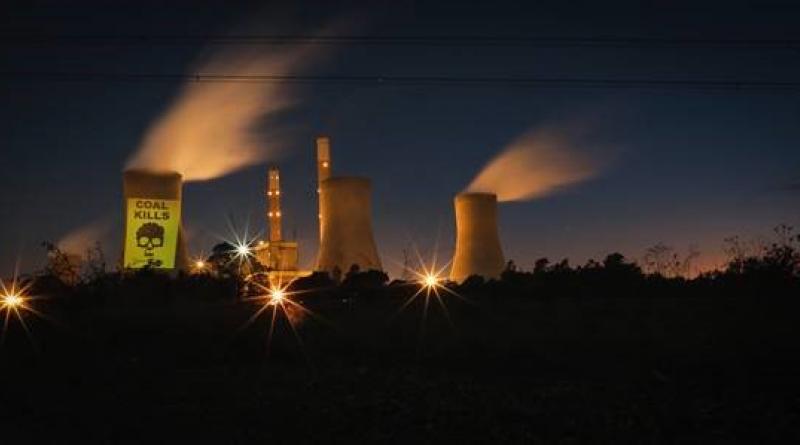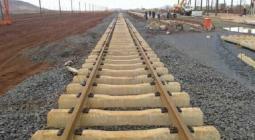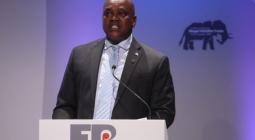Botswana plans more coal-fired power as African solar accelerates

An African economic leader like Botswana should embrace solar to reduce subsidies and tariff hikes.
As Sub-Saharan solar ambition has scaled up, Botswana has awarded its first ever power generation licenses to independent power producers (IPPs) – all three of them coal projects.
Most of the planned power generation is expected to export electricity to Botswana’s neighbours.
Energy & Natural Resource Corporation’s planned 600 megawatt (MW) coal-fired power station is expected to export power to South Africa’s Eskom power utility, Zimbabwe’s power utility Zesa and the Southern African Power Pool. Sese Power’s 225MW coal-fired power station is expected to export electricity to mining companies in Zambia.
Only power from Tlou Energy’s 2MW coal bed methane and solar project is expected to be for domestic consumption.
Tlou Energy’s incorporation of solar power in its project reflects the future of power generation in Southern Africa amidst technology that mirrors its past.
African solar ambition scaling up
This development in Botswana comes as solar ambition across Africa has been accelerating. In May 2020, Algeria endorsed a huge 4 gigawatt (GW), five-year solar plan that will install 10 times the nation’s current solar power capacity for an investment in excess of $3bn.
May also saw major solar projects announced in Botswana’s vicinity.
Zambian state-owned electricity company Zesco announced that it had signed contracts worth $548m for the development of 600MW of solar power plants. And Zimbabwe announced an invitation to bid for 500MW of solar capacity across several locations. This follows the announcement of a 500MW solar project in Uganda in February this year.
Furthermore, mining companies are increasingly keen to develop solar power to meet their own power needs. Zimbabwean gold miner RioZim is planning 178MW of solar to meet the power needs of its own mining operations and make it independent of power utility Zesa, despite its attempt to develop a coal power station for the rest of nation.
In South Africa, mining companies are keen to start investing in solar power to reduce reliance on Eskom’s unreliable and expensive supply caused in part by the South African power utility’s financially catastrophic investment in new coal-fired power generation.
Botswana has had its own issues with coal-fired power development.
The Morupule B coal power plant has been a major headache for the nation. Currently the country’s only operating coal plant, Morupule B was completed at a cost of US1bn but has been plagued by technical problems that have left it unable to operate anywhere near full capacity.
The lack of available capacity led Botswana Power Corporation to seek to refurbish and reopen the previously shut down Morupule A coal plant. However, the refurbishment of this plant has reportedly also been mired in issues, both technical and financial.
Furthermore, a planned 300MW extension of Morupule B appears to have been shelved after the main proponent Marubeni pulled out of the project last year. Marubeni is one of a growing number of developers, investors and banks that are now distancing themselves from coal-fired power development.
Well over 100 globally significant banks have policies that restrict them from financing coal power and the list is now growing faster than ever. Such banks include major South African banks and the African Development Bank.
Botswana is an African economic leader
Botswana’s economy stands out from the rest of Africa. Rating agency Standard & Poor’s recentlydowngraded Botswana’s credit rating to BBB+ following COVID-19 impacts but it remains investment grade with one of the highest ratings on the continent. Moody’s rates Botswana’s credit even higher at A2 although with a negative outlook in the context of the current global downturn.
Botswana also has high levels of solar radiation and low population density making it a good candidate for solar power development as suitable developments sites ought to be plentiful. In addition, Botswana is ranked as being less corrupt than South Korea and a number of EU states including Italy.
All this means that Botswana should be able to attract investment into its power sector. However, with financiers and . The International Energy Agency is calling for nations to invest in clean energy as a way to boost jobs and revitalise economies in the wake of COVID-19.
There is ambition for solar power in Botswana, but progress has been slow, and the country has fallen behind many other African nations. The Botswana Power Corporation (BPC) is expected to finally sign a deal for the long-delayed development of 100MW of solar before the end of the year.
However, momentum behind Botswanan solar may now be building. Following the issuance of generation licences to the country’s first independent power producers (IPPs), much of the latest interest in further generation licenses is coming from solar investors.
Power tariffs increasing significantly
Botswana has an important opportunity to take advantage of the declining cost of solar power to reduce the cost of power generation and the need for power subsidies and tariff increases.
BPC has recently increased power tariffs by 22% in order to boost revenues and reduce the need for further government subsidies to cover its losses. BPC’s highly unreliable coal-fired power units are making the utility reliant on expensive power imports.
Reliance on expensive coal-fired power plants goes hand in hand with the need for tariff or subsidy increases in developing nations. Indonesia’s state-owned power utility has seen its misguided reliance on new coal IPPs lead to the need for rapidly escalating government subsidies which may reach US$7.2bn in 2021. Bangladesh is also seeing power subsidies increase significantly, a trend set to continue if it relies on coal- and LNG-fired power into the future as planned.
At last year’s World Economic Forum in Cape Town, Botswana’s President Mokgweetsi Masisi stated that he wanted to nation to embrace the fourth industrial revolution whilst diversifying its economy away from dependence on diamonds.
Moving from a net power importer to a net power exporter makes a lot of sense for Botswana. However, creating a “modern Botswana” won’t be achieved by developing the expensive coal power technology of the last century. A truly modern approach would involve the prioritization of solar power to meet domestic power needs followed by exports to Botswana’s neighbours who will be in need of further power supply as they recover from the COVID-19 slump.
The ever-declining cost of solar power can help BPC lower power tariffs which in turn can help support businesses and jobs across the nation.
The global economic downturn caused by COVID-19 means that refocusing future power plans towards modern technology to help revitalize the economy is more important than ever.
Botswana has many investment advantages over other African nations – it should fully utilize them to lead the continent towards power systems of the 21st century.
Simon Nicholas is an energy finance analyst with IEEFA.
27 July 2020
IEEFA




